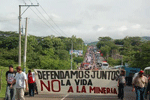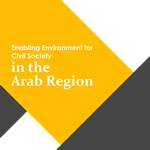Social Watch E-Newsletter - Issue 314 - October 5, 2017
Published on Thu, 2017-10-05 00:00
 |
| Issue 314 - October 5, 2017 |
|
|
Social Watch reports
Spotlight report on the 2030 Agenda
|
|
|
| |
|
| |
Bangladesh: Inequality action requires policy space
|
| |
|
| |
The government of Bangladesh has announced an inclusive approach to development so that the poorest and the most vulnerable populations can be integrated into its national development efforts. This "whole society approach" requires the engagement of all stakeholders in the process. Civil society organizations envisage a strengthening of democratic institutions and participatory governance to achieve the SDGs in Bangladesh, with participation of civil society in all levels of implementation, from the national to the grassroots level.
They therefore demand that "IFIs and the WTO must respect policy spaces for LDCs and developing countries so that national sovereignty in decision-making and the very nature of the State in respect to welfare and redistributive justice can be protected". Read more
|
| |
|
| |
|
| |
Salvadoran CSOs demand urgent fiscan reform
|
| |
|
| |

Demonstration against mining. (Photo:
Upside Down World)
|
El Salvador is the first country in Latin America and perhaps in the world to strictly prohibit all exploration and exploitation of underground metals, as well as open-pit mining. The Social Watch coalition of El Salvador welcomes this decision as “a triumph of the struggle carried out by different social organizations, which now have this legal tool to defend the environment and the lives affected”. However, they remind that “there has historically been a vacuum in the effective implementation of laws and agreements that guarantee the protection of the environment and vulnerable areas, mainly because of the lack of citizen participation in monitoring and implementing the laws”. They also demand with urgency a “comprehensive fiscal reform to effectively combat tax evasion and avoidance, thus guaranteeing needed revenues for implementing the SDGs”. Read more
|
| |
|
| |
Social Watch publishes country reports 2017
Social Watch coalitions around the world are contributing their assessments and reports to the global Social Watch report 2017 on the national implementation of the 2030 Agenda in its first year. Stalled, or slipping back, is the theme that appears in many of the contributions. Natural and un-natural disasters, some of them of catastrophic proportions, appear again and again not just as an obstacle to faster progress towards the agreed goals, but in fact setting the clock back. Part of the reason for lack of progress has to do with an over-reliance on public-private partnerships, urged by the World Bank as a way to finance implementation of the SDGs.
The Social Watch national platforms are independent coalitions of civil society organizations struggling for social and gender justice in their own countries. The Social Watch network has been publishing since 1996 yearly reports on how governments implement their international commitments to eradicate poverty and achieve equality between women and men.
|
| |
|
| |
|
| |
On July 2017, the summit meeting of the G20, the group of 19 major economies and the European Union, was held in Hamburg, Germany. Media perception of the event was marked by the US President's appearance and the conflicts in climate and trade policies. In contrast, other topics, including the G20 activities regarding the implementation of the 2030 Agenda, took a backseat. Hardly any attention was given to the Hamburg Update of the G20 Action Plan on the 2030 Agenda.
Many observers representing academia and civil society viewed the Summit resolutions as insufficient or even counterproductive. Above all, they criticized the blind faith in economic growth reflected by the Summit documents and the one-sided focus on private investments to finance development. Read more
|
|
| |
|
| |
|
| |
 |
The Arab NGO Network for Development (ANND) launched a book on the enabling environment of civil society in the Arab region. The publication aims to present an overview of the current situation of civil society organizations in Tunisia, Egypt, Lebanon, Iraq, Syria, and Palestine. It uses several country-specific indicators regarding the establishment of civil society organizations and their success. The current conflicts raging in the Arab region constitutes a serious challenge, especially in lack of attention to laws regarding the work of civil associations, in addition to the shifts faced in funding.
The publication highlights several legal challenges, especially those resulting from the lack of commitment to the principles of the separation of powers, as applied by democratic societies, as laws and regulations are often politicized. The book includes several recommendations to invigorate the work of civil society organizations in the regional, in order to consolidate the values of justice, equality, and sustainable development. Read more
|
|
| |
|
|
|
| |
|
SOCIAL WATCH IS AN INTERNATIONAL NGO WATCHDOG NETWORK MONITORING POVERTY ERADICATION AND GENDER EQUALITY Social Watch >>
Social Watch E-Newsletter For comments, sugestions, collaborations contact us at: socwatch@socialwatch.orgTo stop receiving this newsletter send a message with the subject "unsubscribe" to: socwatch@socialwatch.org |
|
|
|
SUSCRIBE TO OUR NEWSLETTER
Submit
|
